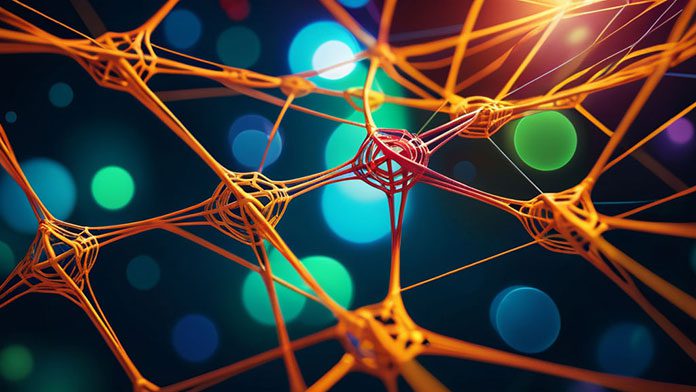Do you ever wonder about the connection between mental disorders and crime?
In this article, we present you with 8 key insights that shed light on this complex relationship.
From the prevalence of mental disorders among criminals to the impact of mental health treatment on reducing crime rates, we explore the evidence, risks, and challenges involved.
Dive into these insights and discover the strategies for improving mental health services and support for individuals involved in the criminal justice system.
Table of Contents

Related Video: "10 Common Mental Illnesses Crash Course" by Psych2Go
Main Points
– Studies consistently show high rates of mental disorders among incarcerated individuals.
– Antisocial personality disorder and substance use disorders are commonly associated with criminal behavior.
– Mental health treatment can significantly reduce the involvement of individuals with mental disorders in criminal activities.
– Stigma surrounding mental illness can hinder access to mental health treatment and support services.
Prevalence of Mental Disorders Among Criminals

Do you know how common mental disorders are among criminals? Understanding the prevalence of mental disorders in prisons is crucial for effective mental health interventions for offenders. Studies have consistently shown high rates of mental disorders among incarcerated individuals, highlighting the urgent need for targeted interventions.
Research indicates that the prevalence of mental disorders in prisons is significantly higher compared to the general population. A systematic review conducted by Fazel and Seewald found that around 10-20% of prisoners worldwide have severe mental disorders such as schizophrenia or bipolar disorder, while approximately 50% have a diagnosable mental health condition. These numbers are alarming and indicate a clear link between mental disorders and criminal behavior.
Moreover, the high prevalence of mental disorders in prisons has significant implications for the criminal justice system. Many offenders with mental health conditions end up in the correctional system due to a lack of appropriate community-based mental health services or diversion programs. This overrepresentation of individuals with mental disorders in prisons calls for improved mental health interventions within the criminal justice system.
Effective mental health interventions for offenders can help reduce recidivism rates and promote successful reintegration into society. These interventions can include psychiatric assessments, medication management, counseling, and access to mental health professionals. By addressing the mental health needs of incarcerated individuals, we can contribute to better outcomes for both the offenders and the community as a whole.
Link Between Specific Mental Disorders and Criminal Behavior

When examining the link between specific mental disorders and criminal behavior, it’s important to consider the wide range of disorders that can potentially be involved. Research has shown that certain disorders, such as antisocial personality disorder and substance use disorders, are more commonly associated with criminal behavior.
However, it’s essential to recognize that not all individuals with these disorders engage in criminal acts, and the presence of a mental disorder alone doesn’t automatically indicate a propensity for criminal behavior.
Mental Disorders and Crime
Certain mental disorders, such as antisocial personality disorder and schizophrenia, have been found to be associated with an increased likelihood of engaging in criminal behavior. Understanding the link between specific mental disorders and criminal behavior is crucial for effective prevention and intervention strategies.
Here are some key insights:
– Antisocial Personality Disorder (ASPD): Research suggests a strong association between ASPD and criminal behavior. Studies have reported high prevalence rates of ASPD among individuals involved in criminal activities, including violent offenses.
– Schizophrenia: Although individuals with schizophrenia are generally not more likely to commit violent crimes compared to the general population, they may be at an increased risk for certain types of offenses, such as property crimes. This could be influenced by factors like substance abuse or lack of treatment.
– Substance Use Disorders (SUD): Co-occurring SUD and mental disorders, such as depression or bipolar disorder, can significantly increase the risk of involvement in criminal behavior. Substance abuse can impair judgment and increase impulsivity, leading to criminal acts.
Understanding the relationship between these mental disorders and criminal behavior is essential for targeted interventions and support for individuals at risk. Further research is needed to explore the underlying mechanisms and develop effective strategies for prevention and treatment.
Specific Disorders and Behavior
Understanding the connection between specific mental disorders and criminal behavior is crucial for gaining insight into the relationship between the two. Research has shown that certain mental disorders can increase the risk of engaging in criminal behavior.
For example, individuals with antisocial personality disorder (ASPD) are more likely to commit crimes such as theft, assault, and drug-related offenses. This disorder is characterized by a disregard for the rights of others and a lack of empathy.
Similarly, individuals with substance use disorders have a higher likelihood of engaging in criminal activities to obtain drugs or money for drugs.
Additionally, there’s evidence to suggest that individuals with schizophrenia may be at an increased risk of committing violent offenses, although the majority of individuals with schizophrenia aren’t violent.
It’s important to note that having a mental disorder doesn’t automatically make someone a criminal, but certain disorders may contribute to an increased risk of engaging in criminal behavior.
Impact of Mental Health Treatment on Reducing Crime Rates

To effectively reduce crime rates, mental health treatment must be prioritized and integrated into the criminal justice system. Research has consistently shown that providing mental health treatment to individuals with mental disorders can have a significant impact on reducing their involvement in criminal activities.
Here are some key insights on the effectiveness of mental health treatment in reducing crime rates:
– Rehabilitation programs: Mental health treatment programs that focus on rehabilitation have been found to be effective in reducing recidivism rates among individuals with mental disorders. These programs often include therapy, counseling, and skills training to address the underlying causes of criminal behavior and promote positive change.
– Role of social support: Social support plays a crucial role in the success of mental health treatment in reducing crime rates. When individuals with mental disorders receive support from their families, friends, and communities, they’re more likely to stay engaged in treatment and make positive changes in their lives. Social support can also help individuals develop healthy coping mechanisms and reduce the likelihood of relapse.
– Integrated approach: Integrating mental health treatment into the criminal justice system is essential for reducing crime rates. By providing mental health services within the criminal justice system, individuals with mental disorders can receive timely and appropriate treatment. This integrated approach can also help address the underlying issues that contribute to criminal behavior, such as substance abuse and trauma.
Risk Factors for Criminal Behavior Among Individuals With Mental Disorders
When examining the risk factors for criminal behavior among individuals with mental disorders, it’s important to consider the role of mental illness itself. Studies have shown that certain mental disorders, such as antisocial personality disorder and substance use disorders, are associated with an increased likelihood of engaging in criminal activities.
However, it’s crucial to note that not all individuals with mental disorders are prone to criminal behavior. Factors such as access to treatment and the effectiveness of interventions also play a significant role in mitigating the risk.
Role of Mental Illness
Individuals with mental disorders may be at an increased risk for engaging in criminal behavior. The stigma surrounding mental illness and the relationship between mental illness and poverty are important factors to consider when examining the role of mental illness in criminal behavior.
Here are some key insights:
– Stigma surrounding mental illness: The negative attitudes and stereotypes associated with mental illness can lead to social exclusion and discrimination, creating additional stressors that may increase the risk of criminal behavior among individuals with mental disorders.
– Relationship between mental illness and poverty: Research suggests that there’s a complex interplay between mental illness and poverty. Poverty can contribute to the development of mental disorders, and in turn, mental disorders can make it difficult for individuals to escape poverty, potentially leading to criminal behavior.
– Intersectionality: It’s important to understand that the relationship between mental illness and criminal behavior is multifaceted and influenced by various factors such as gender, race, and social class. Further research is needed to explore these intersections and inform effective interventions and policies.
Impact of Treatment
How can treatment impact the risk factors for criminal behavior among individuals with mental disorders?
The effectiveness of rehabilitation programs and the long-term impact of mental health treatment play crucial roles in addressing this question.
Evidence suggests that proper treatment can significantly reduce the risk of criminal behavior among individuals with mental disorders.
Rehabilitation programs that focus on providing mental health support, therapy, and skill-building have shown promising results in reducing recidivism rates.
These programs aim to address the underlying causes of criminal behavior, such as substance abuse, lack of coping mechanisms, and social isolation.
Additionally, long-term mental health treatment, including medication management and therapy, can help individuals manage their symptoms effectively, reducing the likelihood of engaging in criminal activities.
Role of Substance Abuse in the Relationship Between Mental Disorders and Crime
Substance abuse plays a significant role in linking mental disorders and crime. When examining the relationship between mental disorders, substance abuse, and crime, it becomes evident that there are several factors at play.
– The role of trauma: Individuals who’ve experienced trauma, such as physical or sexual abuse, are more likely to develop mental disorders and engage in criminal behavior. Trauma can contribute to the development of mental disorders, which in turn can increase the likelihood of criminal involvement.
– Impact of socioeconomic factors: Socioeconomic factors, such as poverty and unemployment, can exacerbate the relationship between mental disorders and crime. People from disadvantaged backgrounds may be more susceptible to substance abuse and mental disorders due to limited access to resources and support systems. These factors can increase the likelihood of engaging in criminal behavior as a means of survival or coping.
– Substance abuse as a coping mechanism: Many individuals with mental disorders turn to substance abuse as a way to self-medicate or alleviate their symptoms. Substance abuse can worsen their mental health condition, leading to an increased risk of criminal activity. Moreover, the illegal nature of drug use can further expose individuals to criminal behavior, such as drug trafficking or theft.
Understanding the role of substance abuse in the relationship between mental disorders and crime is crucial for developing effective intervention strategies and providing appropriate support to individuals in need. By addressing substance abuse and mental health issues simultaneously, we can help break the cycle of crime and mental illness.
Effectiveness of Diversion Programs for Offenders With Mental Disorders
To effectively address the needs of offenders with mental disorders, it’s important to explore the effectiveness of diversion programs in reducing recidivism rates. Diversion programs are alternatives to incarceration that aim to provide offenders with mental disorders access to appropriate mental health treatment and support services.
Several studies have examined the impact of mental health treatment within diversion programs and have found promising results. Research has shown that diversion programs that incorporate mental health treatment can have a significant impact on reducing recidivism rates among offenders with mental disorders. A study conducted by Steadman et al. (2000) found that individuals who participated in a mental health court diversion program had lower rates of re-arrest compared to those who went through the traditional criminal justice system. Similarly, a meta-analysis conducted by Lamb and Weinberger (2008) found that diversion programs significantly reduced re-arrest rates among offenders with mental disorders.
The effectiveness of diversion programs can be attributed to the comprehensive and individualized approach they provide. These programs often include mental health assessments, case management, counseling services, and access to community-based support programs. By addressing the underlying mental health issues that contribute to criminal behavior, diversion programs can help break the cycle of recidivism.
Challenges in Identifying and Diagnosing Mental Disorders in the Criminal Justice System
While it can be challenging, you should strive to accurately identify and diagnose mental disorders in the criminal justice system. The challenges in diagnosis, identification, and treatment of mental disorders in this context are numerous and can have a significant impact on recidivism rates. Here are some key challenges to consider:
– Limited resources: The criminal justice system often lacks the necessary resources to provide comprehensive mental health evaluations and treatment. This can lead to inadequate diagnoses and ineffective treatment plans for individuals with mental disorders.
– Stigma and lack of awareness: There’s still a stigma surrounding mental health in society, including within the criminal justice system. This can lead to underreporting of mental disorders and a lack of awareness among law enforcement and correctional staff, making it difficult to accurately identify individuals in need of mental health services.
– Co-occurring disorders: Many individuals in the criminal justice system have co-occurring disorders, meaning they’ve both a mental disorder and a substance use disorder. These dual diagnoses can complicate the identification and treatment of mental disorders, requiring specialized and integrated approaches.
The impact of inadequate mental health services on recidivism rates is significant. Without proper diagnosis and treatment, individuals with mental disorders are more likely to reoffend and become trapped in a cycle of criminal behavior. It’s crucial for the criminal justice system to address these challenges and provide accessible, evidence-based mental health services to reduce recidivism rates and promote rehabilitation.
Strategies for Improving Mental Health Services and Support for Individuals Involved in the Criminal Justice System
One key strategy for improving mental health services and support for individuals involved in the criminal justice system is to increase access to specialized treatment programs. Improving rehabilitation programs is crucial in providing effective and targeted support for individuals with mental disorders who’ve come into contact with the criminal justice system. These programs should be designed to address the specific needs of this population, such as substance abuse treatment, anger management, and cognitive-behavioral therapy. Collaborative approaches in treatment, involving multidisciplinary teams of mental health professionals, correctional staff, and community organizations, can also be instrumental in providing comprehensive and integrated care.
By increasing access to specialized treatment programs, individuals with mental disorders who are involved in the criminal justice system can receive the necessary support to address their underlying mental health conditions. This can reduce the likelihood of reoffending and improve their overall well-being. Additionally, these programs can help individuals develop the necessary skills and coping mechanisms to reintegrate into society successfully.
It is essential to prioritize the implementation and expansion of these specialized treatment programs within correctional facilities, as well as in community settings. By investing in these programs, policymakers can contribute to the successful rehabilitation and reintegration of individuals with mental disorders, ultimately benefiting both the individuals themselves and society as a whole.
Frequently Asked Questions
What Is the Relationship Between Mental Disorders and the Severity of Criminal Behavior?
The relationship between mental disorders and the severity of criminal behavior is complex. Mental disorders can contribute to an increased risk of recidivism, but the impact of mental health interventions on criminal behavior is not fully understood.
How Do Mental Health Treatment Programs Specifically Target and Reduce Criminal Behavior Rates Among Individuals With Mental Disorders?
Mental health treatment programs effectively reduce criminal behavior rates among individuals with mental disorders. Rehabilitation programs for offenders focus on addressing the underlying causes of criminal behavior and providing support for recovery and reintegration into society.
Are There Specific Risk Factors Within Individuals With Mental Disorders That Contribute to Criminal Behavior?
You may wonder what specific risk factors within individuals with mental disorders contribute to criminal behavior. Let's delve into this question and explore the evidence-based insights on the connection between mental disorders and criminal behavior.
How Does Substance Abuse Intersect With Mental Disorders to Increase the Likelihood of Criminal Behavior?
Substance abuse, when combined with mental disorders, can increase the likelihood of criminal behavior. Implementing substance abuse interventions and focusing on criminal recidivism prevention are important strategies to address this issue.
What Are Some Effective Strategies or Programs in Place to Divert Offenders With Mental Disorders From the Criminal Justice System?
Diversion programs and alternative sentencing can effectively reduce the involvement of offenders with mental disorders in the criminal justice system. By providing treatment and support, these programs address the underlying causes of criminal behavior.


